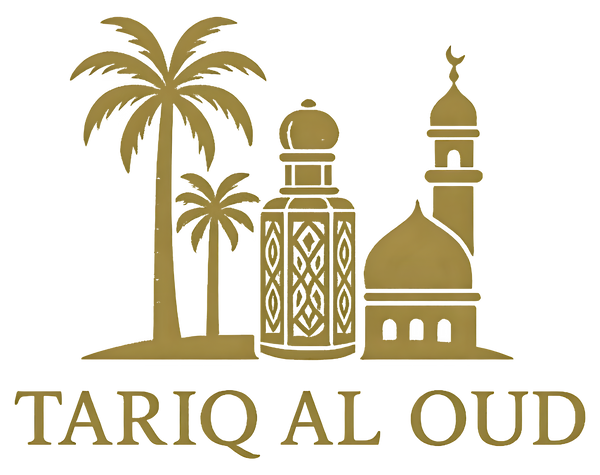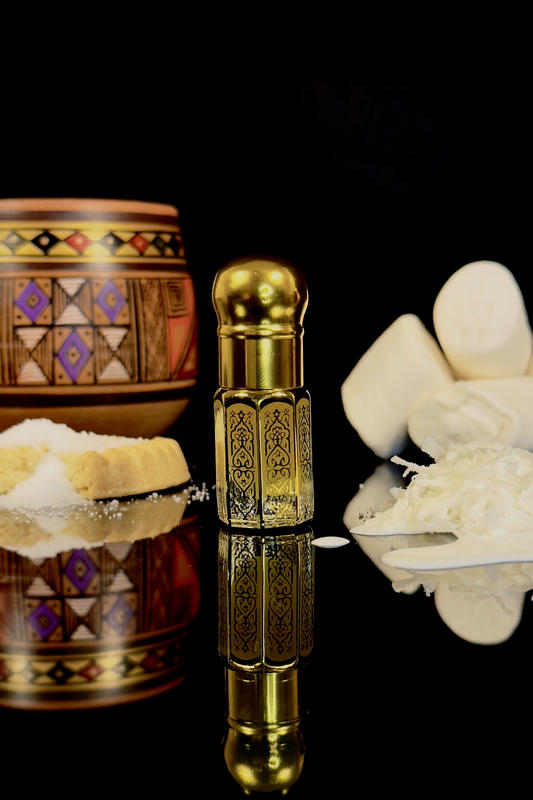
The Fragrant Legacy: The History Of Islamic Perfumery.
THE SUNNAH OF WEARING PERFUME
Fragrance has held a place of honor in Islam since the earliest days of the ummah. The Prophet Muhammad loved pleasant scents and spoke highly of them:
"Perfume and women have been made dear to me, and my comfort has been provided in prayer" - Sunan an-Nasa'i 3939
It is also narrated that:
"The Prophet (PBUH) used not to reject the gifts of perfume" Sahih al-Bukhari 2582
In Islam, perfume is more than personal grooming - it is a sunnah that reflects dignity, respect for others, and love for what Allah SWT has made beautiful. One of the most emphasized occasions for this sunnah is Jumu'ah (Friday prayer), when men are encouraged to bathe, wear their best clothes, and apply fragrance before going to the masjid.
JUMUʼAH AND THE SUNNAH OF FRAGRANCE
The Prophet PBUH encouraged the use of perfume on Fridays:
"Whoever comes to Friday (prayer), let him take a bath and if he has perfume then let him put some on." Sunan Ibn Majah 1098
This sunnah makes Jumu'ah a weekly opportunity to revive a prophetic tradition - applying fragrance after ghusl, before stepping into the house of Allah.
A BRIEF HISTORY OF ISLAMIC PERFUMERY
Perfumery in the Islamic world goes back over 1,400 years. Arabia was a hub for the global fragrance trade, linking the spice and incense routes of India, East Africa, and the Far East.
From Yemen came frankincense and myrrh. From India and Southeast Asia came oud (agarwood). From Central Asia and beyond came musk and ambergris. From Persia came rose and saffron.
These ingredients were traded, blended, and perfected in the Muslim world, eventually influencing European perfumery during the Islamic Golden Age.
Perfume in the Time of Prophet Muhammad PBUH
The Prophet and his companions used natural perfume oils such as:
- Musk (Misk) - highly valued and beloved to the Prophet.
- Oud (Agarwood) - burned as incense and infused into oils.
- Ambergris a sweet, oceanic note from the sea.
- Rose - distilled into water and oil for scenting clothes and spaces.
Perfumes were typically oil-based attars, applied directly to the skin, beard, and garments.
Mosques were also perfumed a tradition that continues in the Haramain today.
THE GOLDEN AGE OF ISLAMIC PERFUMERY
During the Abbasid Caliphate (8th-13th centuries), Muslim scholars and perfumers developed advanced distillation techniques. Al-Kindi and Ibn Sina (Avicenna) wrote extensively on fragrance extraction and blending.
Ibn Sina is credited with perfecting the distillation of rose water a method still used today.
Perfume was considered both a science and an art, used in homes, mosques, clothing, and even as diplomatic gifts.
FRAGRANCE AS WORSHIP AND ETIQUETTE
In Islam, fragrance is tied to acts of worship and good manners:
- Before Prayer: The Prophet PBUH applied scent before entering the masjid.
- On Fridays: Men are encouraged to wear fragrance for Jumu'ah.
- Visiting Others: Applying perfume before gatherings shows respect and care.
ISLAMIC PERFUME TRADITIONS TODAY
In many Muslim cultures, alcohol-free perfume oils (attars) are still widely used. Scents like Kiswah al Kaabah and Hajar al Aswaad are made with traditional methods, often passed down for generations.
In the Haramain, the cloth of the Kaaba, the carpets of Masjid al-Nabawi, and the Black Stone are scented daily - keeping alive a practice rooted in the earliest days of Islam.
REVIVING THE SUNNAH OF PERFUME IN THE WEST
In the West, designer sprays dominate, and authentic Islamic perfumes are harder to find. While modern sprays still fulfill the sunnah, oil-based perfumes are the closest link to what the Prophet PBUH
actually wore - concentrated, pure, and long-lasting.
You can revive this sunnah by:
- Keeping a small bottle of attar with you.
- Applying fragrance before prayer, especially on Fridays.
- Sharing perfume with others a sunnah act in itself.
OUR MISSION AT TARIQ AL OUD
At Tariq al Oud, we aim to preserve the heritage of Islamic perfumery. Our oils are sourced from authentic makers in Makkah, Madinah, and beyond - the same scents used in the Haramain today.
Every bottle connects you to over 1,400 years of tradition, reviving a sunnah that is beautiful in both form and meaning.



